*Content warning: Discussion of depression
Two years ago, I found myself looking around an empty bedroom. Four walls. No windows. How ironic, I thought, that a house in California would block out all the daylight. Instead of the sun, a tall stack of moving boxes peered down at me. We left our home in New York and moved to the West Coast when my dad got a new job in Los Angeles. Relocating was exhausting, stressful, and seemingly destructive of the future I envisioned for myself back home.
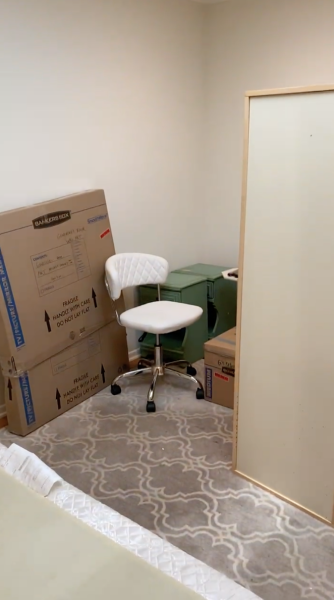
The shift felt cosmic. I stayed in my windowless room for the better part of the summer. Besides my family, I didn’t talk to anyone for two months. During that time, I developed depression. Isolating felt like the only way to deal with my emotions. My mind looped through a constant highlight reel of the moments I would miss: ring day with my best friends, camping with neighbors, even packing up my old room for college. I felt rootless in California, but dead and gone from New York. Eventually, my sadness transformed into anger that I took out on other people. I resented my parents for seizing control of my life. I looked down on my brother and sister who seemed to adjust so easily. I even hated my new classmates for replacing the ones I missed. In a journal entry on March 30th, I wrote, “In my head, I’m searching for something to look forward to, but nothing is there. I can’t think of anything to hope for here. I’m just so tired of letting everything go.”
A year later, California still didn’t feel like home, and neither did Westridge. My life consisted of classes, assignments, and assessments. Then repeat. The weeks were long and the stress felt ceaseless. One afternoon, while procrastinating, I passed by the check-in table for Matilda auditions. A classmate who was stage managing the show waved me over to ask a question about a project. I only planned to hang out for a couple of minutes, but the idea of writing my essay seemed unbearable. Eventually, our small talk transformed into jokes about classes, assignments, and eventually, the show. I ended up staying for the whole audition, and, though I didn’t know it at the time, the entire production.
I remember walking into my first rehearsal after joining as a stage manager.
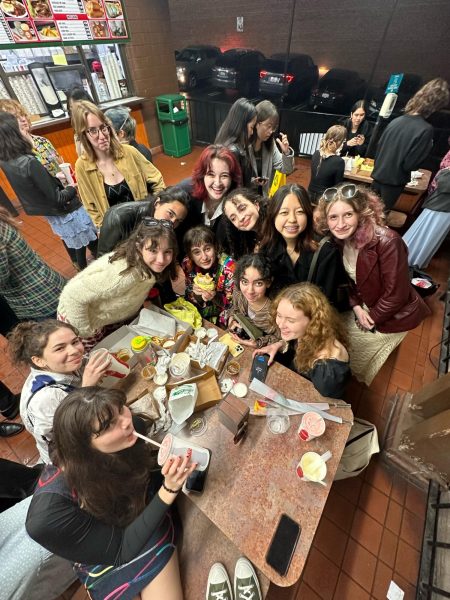
While I didn’t have many close friends in the cast, I instantly felt a sense of belonging. Faces lit up when Mr. Kruhm walked into the Blackbox and invited everyone to sit in a circle. He explained that we would start the day by playing a game. Each one of us would make a silly noise and the group would repeat. My heart filled with dread as I desperately tried to think of something not too embarrassing. When my turn came, I stood waiting for my face to turn bright red. Forcing myself to stand up straight, I executed the move I’d carefully planned in my head. Stomp, stomp, turn, “bam!” I watched as the group enthusiastically smiled and copied each motion I made. Looking back, it was this silly icebreaker that turned a room full of acquaintances into a group of my closest friends. One by one, as each person performed their move, they were met with enthusiasm, often laughter, but always acceptance. With each turn, the cast tethered itself closer together and the possibility of making memories with new people became my reality.
From that day forward, the production slowly helped me through my own trust exercise, as I adapted to my new life in California. Without realizing it, I shifted from an observer to a member of a community committed to unwavering support for one another. When someone thought they needed to rehearse a dance number, everyone showed up during lunch to practice. When a stage manager got sick on closing, Briar and Lauren stepped in to perform the telekinesis scenes. When I felt unsure about calling cues for Revolting Children, the entire tech crew helped me practice. For four months, I was a part of a group that would do anything to support each other’s success.
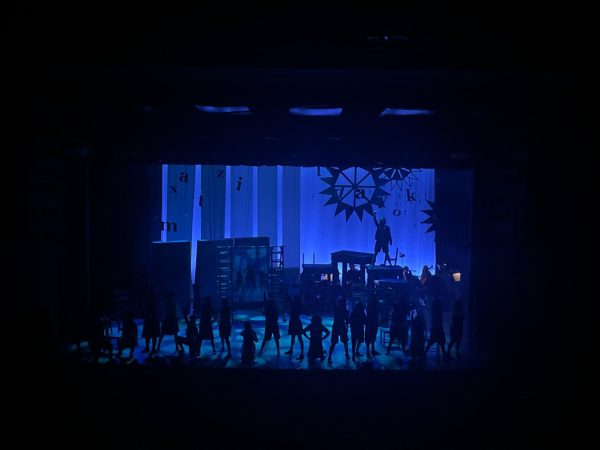
On opening night, just a few moments into Act 2, I watched the curtain open for When I Grow Up, and I glimpsed down at the people who embraced me. The lyrics bounced around the room, “Just because I find myself in this story, It doesn’t mean that everything is written for me…” It was almost laughable how appropriate those words felt. When the life I thought I’d have in New York suddenly disappeared, the curtain seemed to rise on a new one here at Westridge. At that moment, I understood that California was not representative of what I thought I lost. Rather, theater taught me about all I had to gain. I now look forward to the moments I can listen to the cast sing in the Blackbox, wave at them around campus, or chat in the library. And as I cued the lights that night from the back of PAC, I found myself in yet another dark little room. This time, however, I had a window. From the booth, I saw a fresh view of my new life. A year after I unpacked my moving boxes, I realized that I hadn’t lost anything at all. I’d gained perspective, friendship, and at long last, belonging.




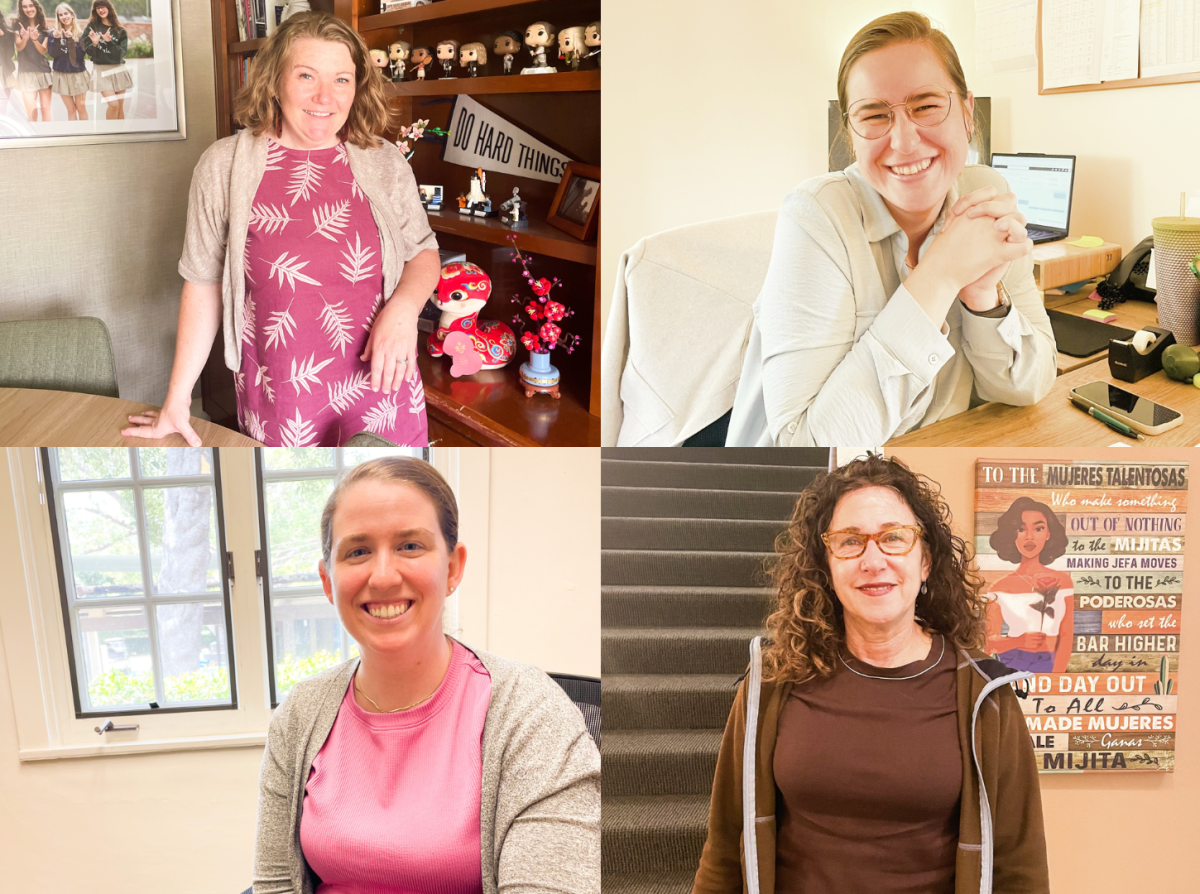
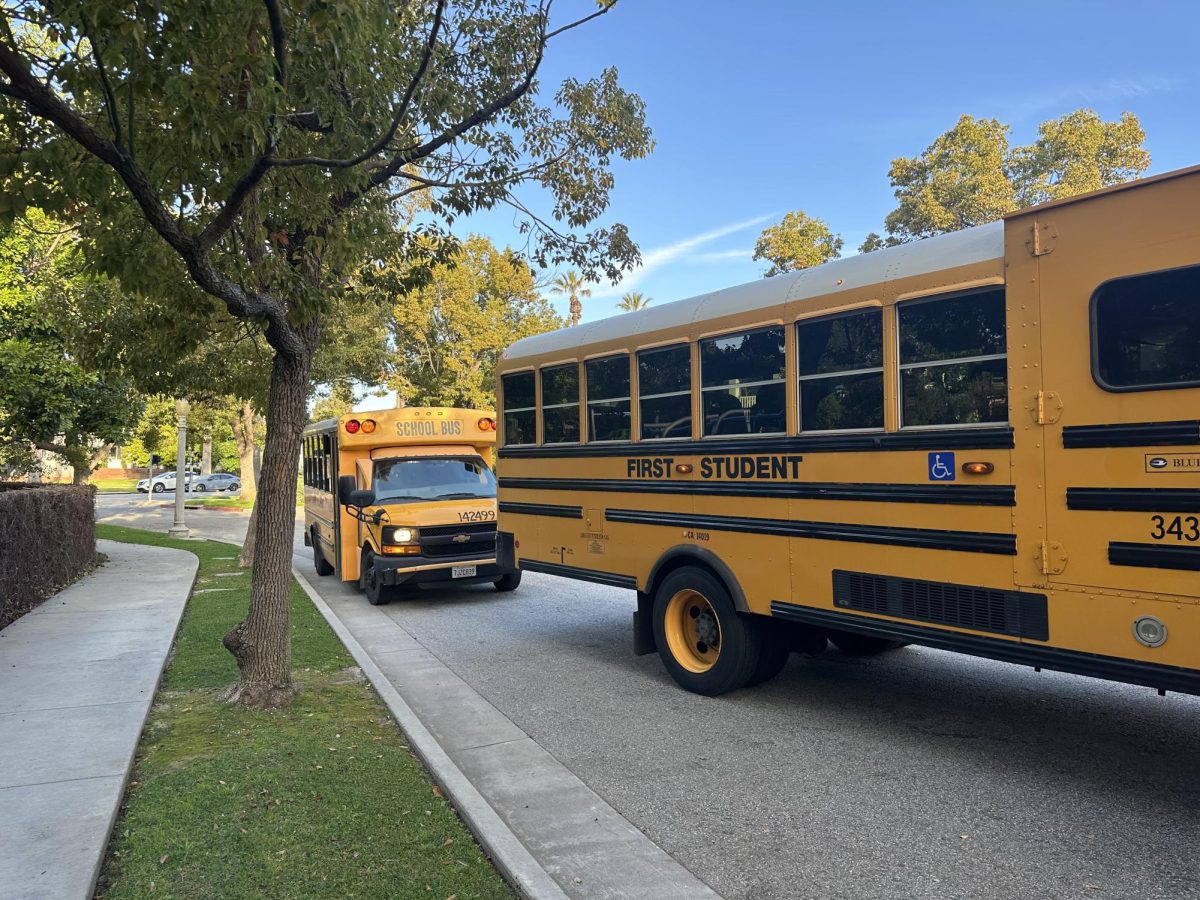


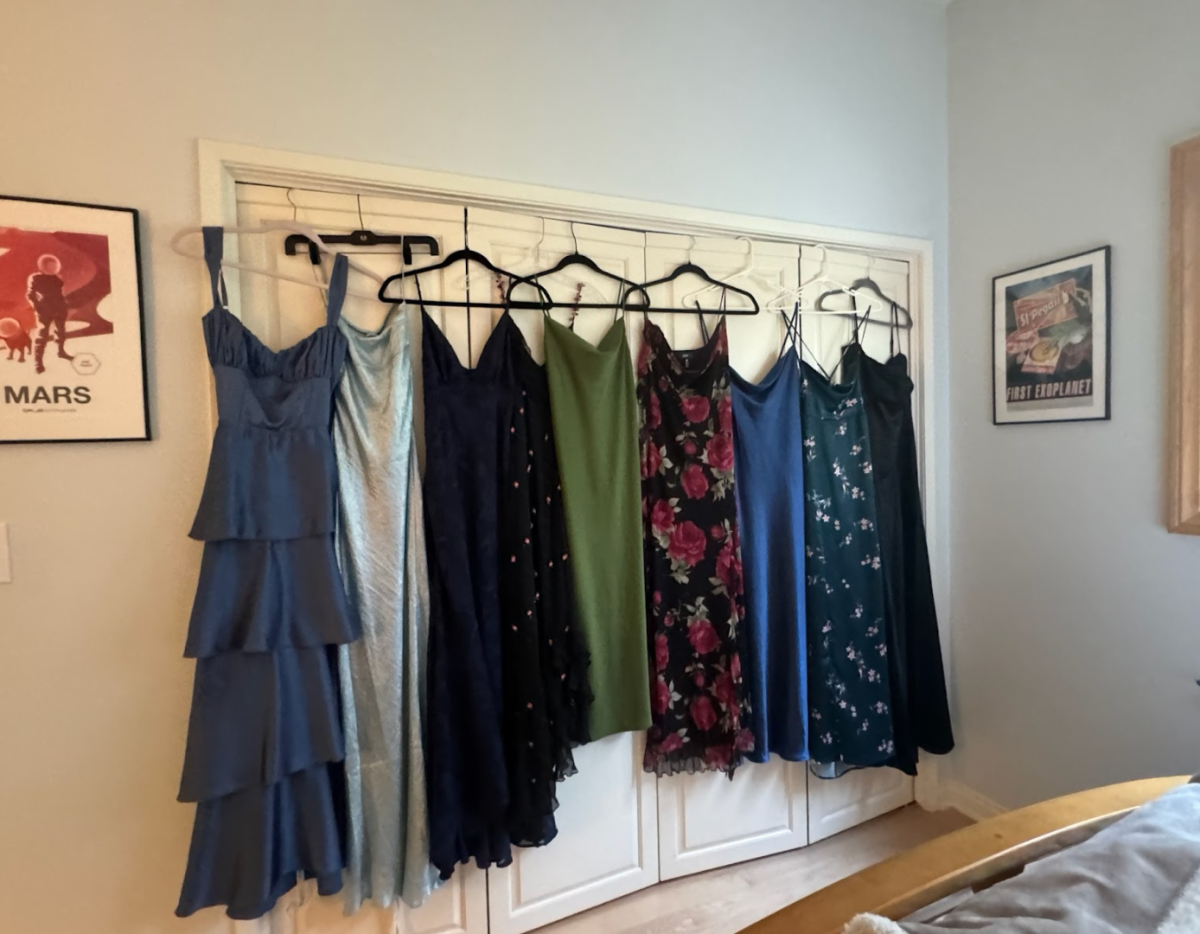








![Dr. Zanita Kelly, Director of Lower and Middle School, pictured above, and the rest of Westridge Administration were instrumental to providing Westridge faculty and staff the support they needed after the Eaton fire. "[Teachers] are part of the community," said Dr. Kelly. "Just like our families and students."](https://westridgespyglass.org/wp-content/uploads/2025/03/dr.-kellyyy-1-e1748143600809.png)






















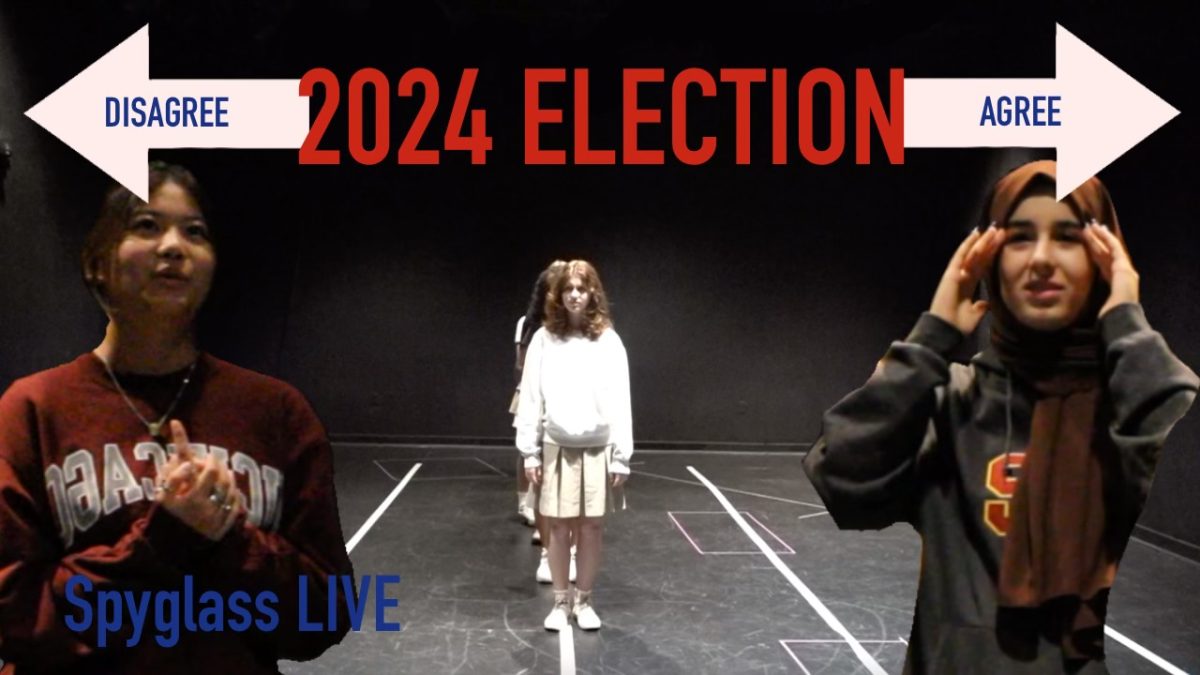














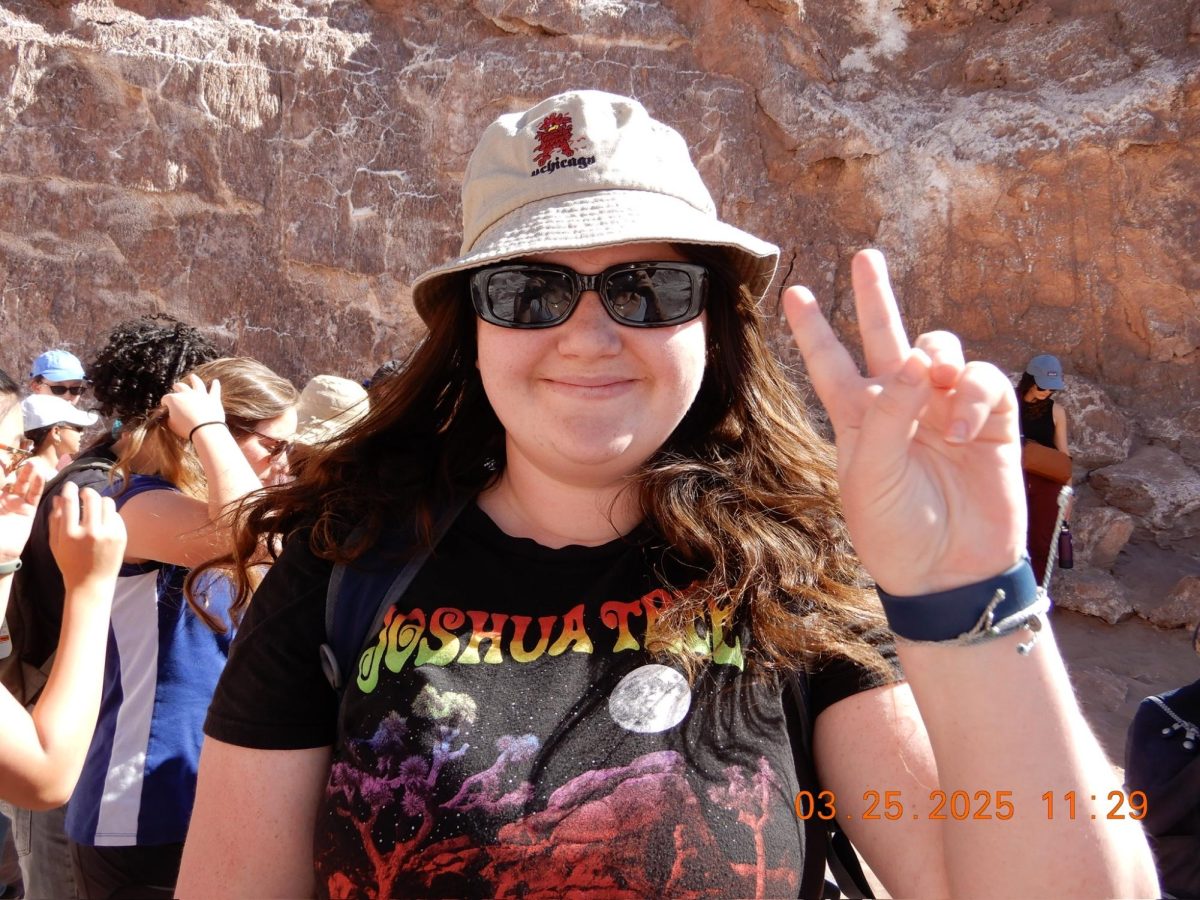





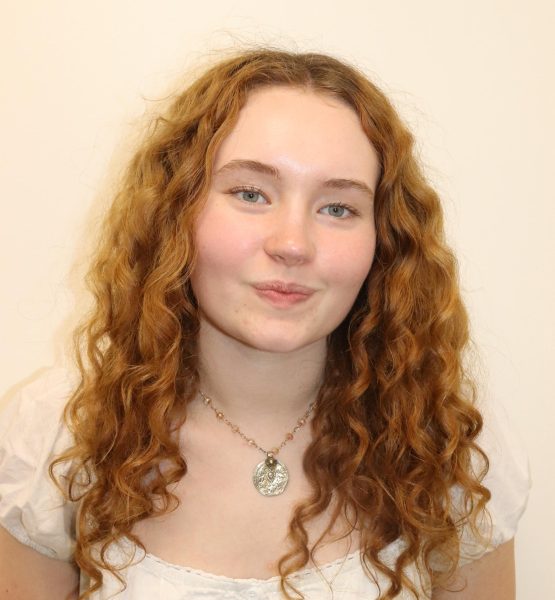
micah • Nov 13, 2023 at 11:53 am
We love you Genevieve!